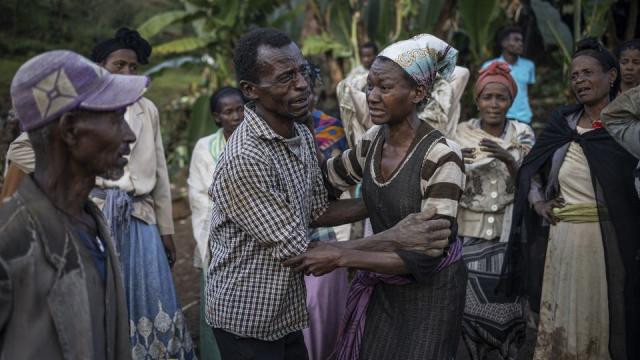
A groundbreaking vaginal ring designed to prevent HIV is set to be introduced in South Africa, a country grappling with the world’s most extensive HIV epidemic, as announced by a global funding collaboration on Friday.
The Global Fund to Fight AIDS, Tuberculosis, and Malaria has reported that, with its assistance, three organizations dedicated to combating AIDS in the nation have initiated an order for 16,000 of these rings. These rings are anticipated to be made accessible in the upcoming months.
“We are convinced that this new (pre-exposure prophylaxis) ring can have a revolutionary impact on HIV prevention,” said Global Fund executive director Peter Sands.
The silicone ring, worn continuously and replaced on a monthly basis, dispenses dapivirine, an antiretroviral medication.
The initial deployment marks the initial phase of expanding treatment accessibility and ensuring widespread availability of the rings in a nation where nearly 8 million individuals are living with HIV, as reported by the Global Fund.
Antiretroviral drugs play a crucial role in controlling the virus, preventing its transmission to others, and have been instrumental in slowing the proliferation of AIDS in the last few decades.
“Women need access to a range of safe and effective options to choose from, including the dapivirine ring, so they can decide to use what works best for them,” said Ntombenhle Mkhize, CEO of the AIDS Foundation of South Africa.
HIV has a long and tragic history in South Africa.
Due to a tragic combination of financial constraints and political resistance, life-saving medications introduced in the late 1990s were inaccessible to impoverished South Africans, resulting in the loss of several hundred thousand lives among those afflicted by AIDS, as estimated.
Today, fatalities have plummeted but new infections are still high.
Recent research has indicated that the ring, endorsed by the World Health Organization, is a safe and convenient preventive measure, significantly lowering the risk of infection.
In the current year, UNAIDS reports that women and girls have represented 53 percent of all global HIV infections.
In South Africa, women bear a disproportionate burden of HIV, comprising 64 percent of the 7.4 million adult population living with the virus in the country.
.”We hope that many more countries will follow South Africa’s move,” said Sands.
The ring has received approval and has undergone implementation studies in several African countries, including Uganda, Kenya, and Zimbabwe.




